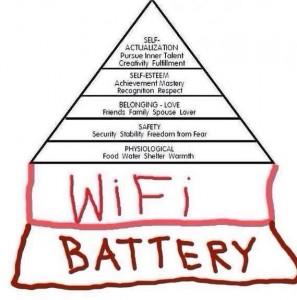Good news for the trapped
As those who read regularly will be aware, I have been working through a preaching series entitled ‘Good News for….’. We have looked at good news for the young, the old, the curious, the nations, the lost, the weary and others. Yesterday it was the turn of ‘the trapped’, and we began by watching Helen George’s brilliant portrayal of a person trapped by circumstance and alcoholism. Given the numbers of people for whom alcohol addiction is a problem, there is liable to be someone in most congregations who will identify with it. Even if not, the feeling of being trapped will be familiar.

CLICK here to see the clip on BBC iplayer – 54 minutes in to the programme
After watching the clip we turned to Psalm 107, which starts exactly the same as the previous Psalm, but then takes a different tack entirely. The Psalm goes on to describe four groups of people who find themselves in different kinds of trouble. From each of them the refrain comes back again and again “in their trouble they cried out”. This applies to the four groups named: pilgrims, prisoners, rebels and sailors.God comes to them all. There is a message here for anyone feeling trapped. It is a message which has been tried and trusted by generations. On the day of trouble, it is medicine for the soul, and on the day when trouble is far away it is good to store it in the medicine cabinet ready for another day.
1. God is not shocked (even if it is your own fault)
Some of the people are entirely innocent “victims” v.4 – describes those who had broken out of Egypt and started long trek (40 years) across desert specifically BECAUSE God instructed them to. In v.23 these seafarers are making a living from the sea and not doing anything wrong. In fact they are probably more aware of God’s marvels and creation than others (v.24). The other two groups are very different:
v.10 -11 We don’t know exactly what they have done – but they appear to be in prison specifically because they have transgressed some rule of God’s . v.17 This group have been living in a state of open rebellion against God, and now live to regret it as sickness creeps into their bodies.
Tow groups are innocent and two groups are to blame – but both are treated equally by God. Each time, there is a formula followed:description of plight-cry-answer
Pilgrims/ wanderers – led to safe city (v.7)
Prisoners – chains are broken (v.14)
Rebels – healed (v. 20)
Seafarers – storm is stilled (v.29)
The Bible has many examples of people who get themselves into trouble. Noah – gets drunk and loses dignity. Moses – loses his temper and kills a man. David – loses his self-control and takes Bathsheba to his bed. Jonah – loses his nerve and runs away from God. God does not disown a single one of them though
2. God is not deaf
v.4 – 5 These pilgrims and wanderers are in the middle of nowhere, Egypt far behind them, the promised land far ahead of them. Parched and weary, they have hardly any voice – but God hears them.
v.12 – 13 These prisoners are shut away from human sight and even any human help “there was no-one to help”. God, though, hears them.
v.18-19 These rebels against God are literally fading away, having made selves ill through their willful neglect of God. With hardly any breath or energy left to speak – they cry out and GOD HEARS THEM.
v.22 These people are far from helpless. They are used to the sea and to being out in all weathers. Their ships are being tossed to and fro in v.24. With No RNLI or coastguard to call on, their words are being snatched away by wind and waves, like shouting in a dream. God HE HEARS THEM though.– v.28
Whenever and wherever however we are trapped, God can always hear us. We see this with Jeremiah down the well; Daniel in the furnace; Jonah in the whale and many others since.
3. God is not incapable
It all very well God not being shocked. It is all very well God not being deaf either. I would not be shocked if someone rang me and said their car had broken down. Not only that – but I would not be deaf to their pleas. The thing is, I would be incapable of doing anything about it. Not only is God neither shocked nor deaf – he is not incapable.
Towards end of Psalm the writer paints a picture of the spectacular power of God, displayed in both positive and negative ways: turning the river into a desert (v.33), or the fruitful land to a salty waste (v.34). He can do it the other way around too, turning the desert into pools of water or the dry ground into springs (v.35). After this there follow pictures of abundance and prosperity provided by God which speak of his mighty powers to intervene.
Not only is God not shocked or deaf when we are trapped – he is not incapable either.
Never beyond reach
Last week I saw a thoroughly modern version of Maslot’s pyramid of needs, with significant amendments:

Maybe future generations really will panic if they cannot be in touch. In truth, though, someone will always hear them…
